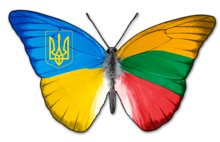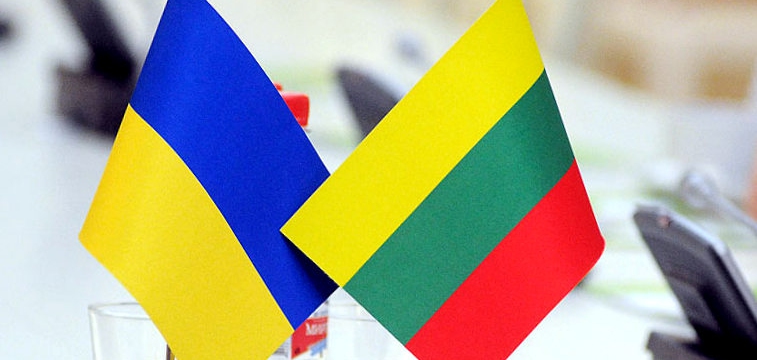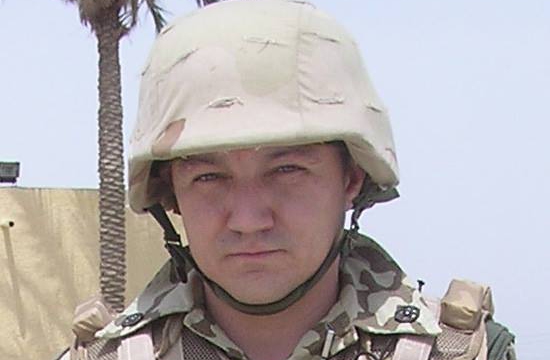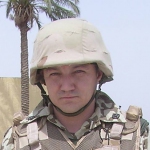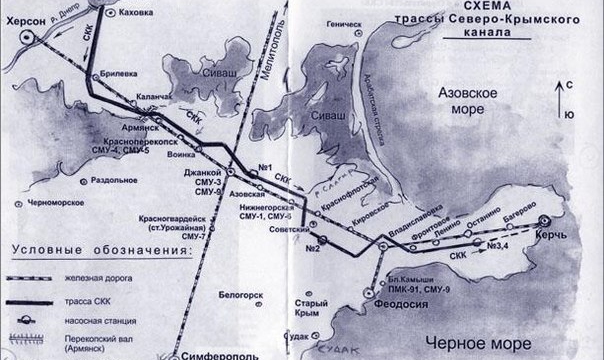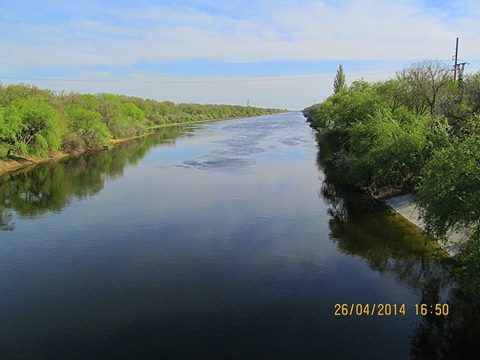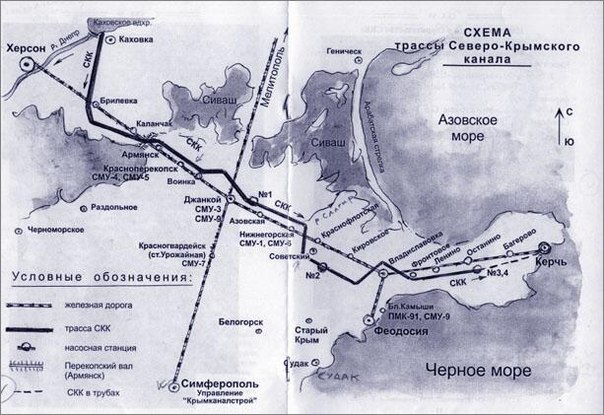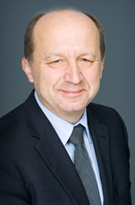Speech made by the leader of opposition of Lithuanian Parliament Andrius Kubilius during the press conference on April 2014 (unofficial translation)
Ukraine – in the spotlight
Ukraine stays in the spotlight, not only for us, but for the whole world as well. However, it is not Ukraine‘s fault.
The world faces a huge crisis, but it is not ‘Crisis of Ukraine’. The world faces a crisis, staged by the regime of Putin, phenomenon of aggressive Putinism, the development of ‘Putinist’ chauvinism in Russia. There is no ‘Crisis of Ukraine’, there is no ‘Ukrainian separatism’ – there is a new type of war, started by Putin, armed terrorism supported by Russia, Russia‘s special forces, not some joyful ‘little green men’.
Russia is attempting to fight an intensive informational war, seeking to establish several already familiar phrases in our minds: Crisis of Ukraine (meaning that Ukraine is the one doing something wrong, not Russia), ‘separatists’ (so that everybody speaks of a ‘peaceful’ attempt to separate from Ukraine allegedly held by Ukrainian Russian-speakers rather than Russian special forces and terrorism), ‘little green men’ (sounds like a phrase from animated movie – much gentler compared to ‘Spetsnaz forces’). We must respond to such imposed informational war by strongly expressing the responsibility of Russia for waging a terrorist war in foreign country – Ukraine.
I don‘t know what Putin‘s next moves to stop the election in Ukraine will be, however it is clear now that the regime in Russia isolates itself from the rest of civilized world. Vladimir Putin is driving himself into the trap of self-isolation. Consequences will first be felt throughout Russian economy, and afterwards will inevitably be catastrophic to the regime itself.
We have had several examples throughout the history, when such combination – authoritarian regime, promoting chauvinism of nation by its aggressive ways, in the end isolates itself from the civilized world and that leads directly to the collapse of such regime.
It is obvious, that Russia ruled by Putin has no civilized future, so the fact that Putin himself draws the collapse of it nearer, is no bad news for the future of Russia. At the same time it is not bad news for the civilized world, us among it, because civilized Russia is essential for both ours and Europe‘s security. And that was effectively demonstrated by the regime of Putin.
We have to be grateful for Ukrainian people and current Ukrainian Government, because while they are quietly suffering Russia’s aggression, they manage to remain stoic and civilized at the same time letting the world see the real face of Putin’s regime also increasing the prospect of civilized Russia.
Ukraine and the 10th anniversary of our EU membership
In the shadow of the events in Ukraine, this week will also be important as we celebrate the 10th anniversary of our own EU membership. Historically speaking, the fact that we became members of EU and NATO – is a historical miracle, as important as the 11th of March. The importance of this miracle is emphasized by the current geopolitical threats. We can only imagine the way we would feel these days, watching the aggression of Putin‘s regime in Ukraine, if we weren’t members of EU and NATO, with the feeling of security this membership brings us. The soldiers of United States who arrived to Lithuania last week, is something that changes our feelings entirely, and we hope, Putin‘s as well.
The achievements we made over the ten years can be called miracle as well. Though we make mistakes, we still are a rapidly developing country, receiving as well as giving to the whole of Europe. We are the best proof that the decision to expand EU, that was made ten years ago, was wise and brought success for both us and the whole EU. We can celebrate that at that time both EU and US leaders had political courage and will to implement this huge vision.
In the year 2000, while being Lithuanian Prime Minister, I had a chance to contribute to the start of this vision’s realization. I remember well in June of that year, journey barefoot through the dunes of Nida (not burned at that time – editor note in 2006 there was a catastrophic fire in the dunes of Nida) with Gunther Verheugen, the EU Commissioner responsible for expansion at that time. Lithuania was considered lagging in the path of EU membership so we had to put lots of efforts while trying to prove we are capable to catch up. It is great that G. Verheugen, still not appreciated properly at the state level for the miracle he helped to achieve, understood us. As he recently said in one public event held in Berlin, Nida was a place where his ‘large expansion’ plan was born.
As I was informed, he recollected the year 2000 in Nida this way:
‘The idea that all 10 countries could become EU members at once, was born while I was walking in the dunes of Nida together with Lithuania’s Prime Minister Andrius Kubilius. He asked me then, what would happen if the lagging countries would catch up with leaders. Would there be enough political will to accept them together with the countries that were the first to start negotiations. At that point I, as a Commissioner for expansion, decided to seek more ambitious expansion plan’.
Today, in the light of big geopolitical challenges, Europe needs as courageous and visionary solutions. While we celebrate the 10th anniversary of our membership and celebrate it as the 10th anniversary of ours and the whole EU’s success, we must declare that further expansion of EU to the so-called Eastern neighborhood will be as successful. Successful both for Europe as well as for those countries. Maybe this type of expansion will require more time; however the fairest civilized EU response to Vladimir Putin’s barbaric aggression in Ukraine would be Moldova, Ukraine, Georgia memberships’ perspective in European Union.
On the 1st of May, on the occasion of 10th anniversary of membership in EU, The Homeland Union – Lithuanian Christian Democrats party’s representatives will gather to a special assembly, dedicated for this celebration. It is an important celebration for us, since we consistently striven to turn Lithuania moving towards West rather than East. We are glad we were right and it is unambiguously proved so today, by Mr. Putin.
Our assembly will become an important event, bringing representatives of Center-right parties from countries, which in the same way we did, turned themselves off the empire. Also the ones that are working on it, trying to achieve the same European integration as we currently have. We are hoping for the large number of influential Ukrainian, Moldavian, Georgian, Belorussian guests as well as European People’s Party representatives from Brussels and the Heads of European Parliament.
Before the assembly we plan a particular conference to discuss current challenges brought by the aggressive politics of V. Putin’s regime and our response as the right-wing parties. This type of assembly in Vilnius is part of the consistent execution of active diplomatic efforts of our political party, regardless weather we are governing or in opposition. Our belief is that our diplomatic efforts are very important and significant and sometimes can rival the results of official Lithuanian diplomacy. Today government of Ukraine consists of parties and leaders we consider colleagues of our own political party. Using our diplomatic efforts we had several meetings with them, in Vilnius, as well as in Kiev and Brussels.
On the occasion of our assembly and conference we plan to establish the common informal collaboration network between center-right parties from the countries, which escaped the imperial grip as we had. Thus far this ‘Post-imperial Vilnius network’ will be called relatively nicely EGE – ‘Europe Goes East’.
It would be great if other Lithuanian European political parties, particularly left-wing parties, would follow our diplomatic effort as an example. Today we, Lithuanians, have to take on the responsibility the same way the old Europe’s left- and right-wing parties took after the 90s, when they started educating, training and teaching us about becoming a legal state with European democracy and Parliamentarism. Thanks to them, Lithuania’s post communist left-wing eventually became social democrats.
Now while we work with the right-wing of Ukraine, it is very important that someone would work as intensively with the left-wing, the former Regions party of Ukraine. Because they will win an election in Ukraine eventually, the same way as former communist party of Algirdas Brazauskas did in Lithuania in 1992. It is good that at that point they already had learned enough from Europe’s left-wing. That is why it is essential now, for left-wing of Lithuania, not only the conservatives, to take on the same responsibility to establish European type left-wing in Ukraine.
I congratulate all Lithuanian people and all parties of Lithuania with the 10th anniversary. However I strongly urge and invite all the parties especially social democrats not only to celebrate the labor day, but also to undertake this large European political work for the sake of Ukraine European future, which means safer future for all of us as well.
